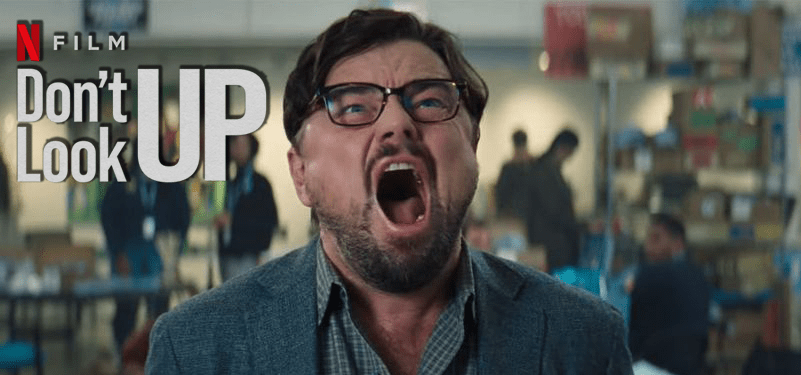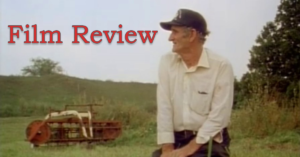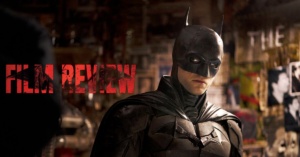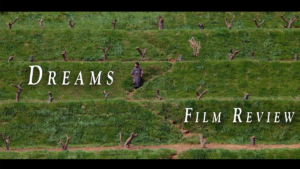2020 was a year full of facing harsh realities about the world we live in. No sooner do we realize the need for social and political change after the Capitol Building riots, after we all hunkered into our home for “two weeks”, do we see our world for what it is: the perfect material for a depressingly-accurate Adam McKay satire picture.
Don’t Look Up features two astronomers, Dr. Randall Mindy (Leonardo DiCaprio) and Ph.D. student Kate Dibiasky (Jennifer Lawrence), who discover that a world-ending asteroid is hurtling towards Earth. While trying to inform those in power, they find their mathematically-proven prophecy of doom falling on deaf ears as the American news cycle, the Elon Musk/SteveJobs-coded corporations and the frustratingly-ineffective federal government do next to nothing to delay what they say is inevitable.
While initially written to lampoon global indifference to the issue of climate change, its delayed release into 2021 has brought it a new context with the international response to COVID-19. McKay has used dark comedy like this before, making light of the 2008 U.S. housing bubble with The Big Short and dissecting the career of former vice president Dick Cheney in Vice.
Those films’ humor was tongue-in-cheek and dry, marking a significant shift away from the laugh-out-loud comedies he had become famous for. But Don’t Look Up loses that subtlety, marinating too long in the “absurd but plausible” mockery of our current state of living on Earth to the point where it’s indiscernible from reality. Despite a star-studded cast and a commendable message, being smacked with said message in every scene creates a weak cry for profound change from humanity and, more importantly, laughs.
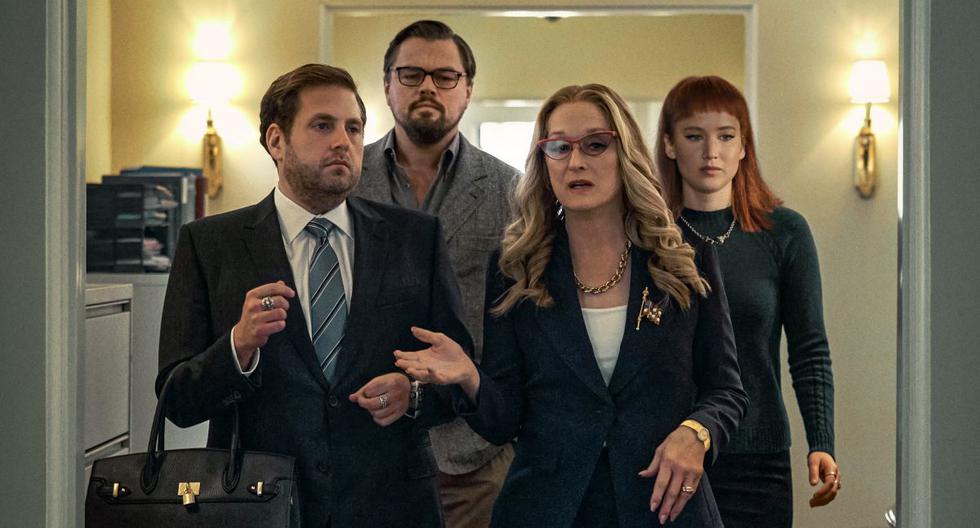
DiCaprio and Lawrence work well with each other and share great moments in their student/teacher relationship. As Dr. Mindy consoles Dibiasky through the whole process after her discovery, not only did I understand their dynamic, but it created a brilliant understanding of these characters. Mindy constantly wants to put on this air of confidence, to be recognized for his credibility, but fails to take the charge he feels he deserves. DiCaprio shows a side we’re not used to seeing from him in his more boisterous roles, like Jordan Belfort in The Wolf of Wall Street and Jay Gatsby in The Great Gatsby, as we see him suffer through timidity while debriefing President Janie Orlean (Meryl Streep) and her Chief of Staff son, Jason (Jonah Hill).
Dibiasky, on the other hand, makes no attempts to put on a brave face for anyone; her alarmed honesty on the broadcast, delving into hysterics as the asteroid that shares her name gets closer, turns her into a right-wing meme and branded a “crazy libtard”. JLaw’s portrayal of Dibiasky is honest and transparent, taking on the straight man persona to the global buffoonery.
The star power in this film alone isn’t entirely earned or utilized to its fullest potential. A wasted opportunity was Mark Rylance’s performance as tech billionaire and business mogul Peter Isherwell. A clear-cut amalgamation of prominent tech leaders (Bill Gates, Steve Jobs, Elon Musk), Isherwell should have been the true antagonist rather than President Orlean. He’s directly responsible for ceasing the mission that very well could’ve saved the planet by suggesting they mine the asteroid for precious minerals, profiting off of certain pieces hitting the Earth “safely.” He even loops in certain economically challenged countries to allow the pieces to hit their territory, a cold demonstration of – not national greed – but American ingenuity to always try and come out unscathed. Rylance’s role as the antithesis to Mindy and Dibiasky’s attempts to warn the people and save everyone was lacking. He’s a foundation for Orlean’s ‘villainy.’ Still, his characterization as the scarily problematic “genius” could have been a great point to assert a more significant parallel that follows McKay’s stance on climate change: it’s not the politicians, it’s the billionaires and businesses who buy them out.
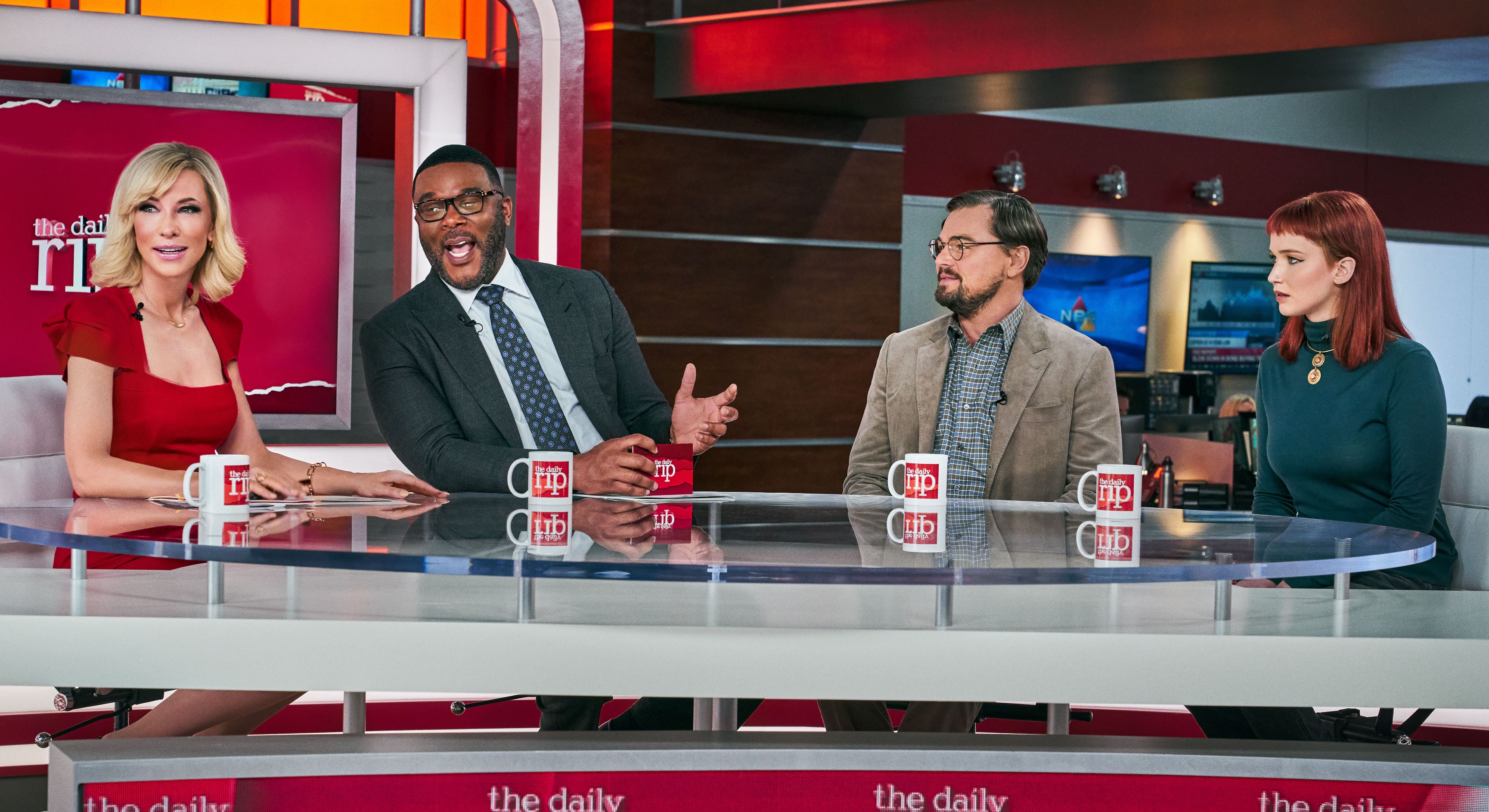
As the film juggles a message on climate change and some form of optimism in the face of an unpreventable mass-extinction event, Don’t Look Up also mocks the former political administration of Donald Trump. From nepotism to unhinged rallies to…well, all of it. All the scandals and how Orlean conducted her time in the presidency was something I’d believe the Trump leadership would do, albeit significantly heightened for comedic effect. It was both funny and dispiriting to see a female-version of Trump be just as reckless in a position of power, but Streep played it so well.
But the presentation is just so smug about itself that I can’t help but dislike what it’s doing. Whereas other movies would let the metaphor breathe, giving the audience a chance to think of its meaning, McKay hits you over the head with the (#not_so_deep) parallels to the reality our government faced. And it ruins the joke for me. I wasn’t laughing out loud, and I wasn’t exhaling really hard from my nose about it; I was unfazed by the humor of the whole concept after the first 45-minutes or so.
Not to say that I didn’t laugh at all. Recurring bits like Dibiasky’s one-sided feud with the general who charged her for free snacks in the White House kept the humor alive for me. Lawrence shined comedically more than almost everyone except Jonah Hill. His bro-coded, Donald Trump Jr.-personality character fit as the son of the problematic President Orlean, playing it straight that this is a member of the executive branch with some hold in power. I’m not ashamed to say I laughed at little moments like this; it’s suitable for the comedy film that I laughed at all. But what was meant to be more “high-brow” comedy (I guess), like something from a (much better) political satire, Dr. Strangelove (1964), fell flat overall. The correlation to our reality that is meant to be underlying is salient to even the most unassuming audience member.
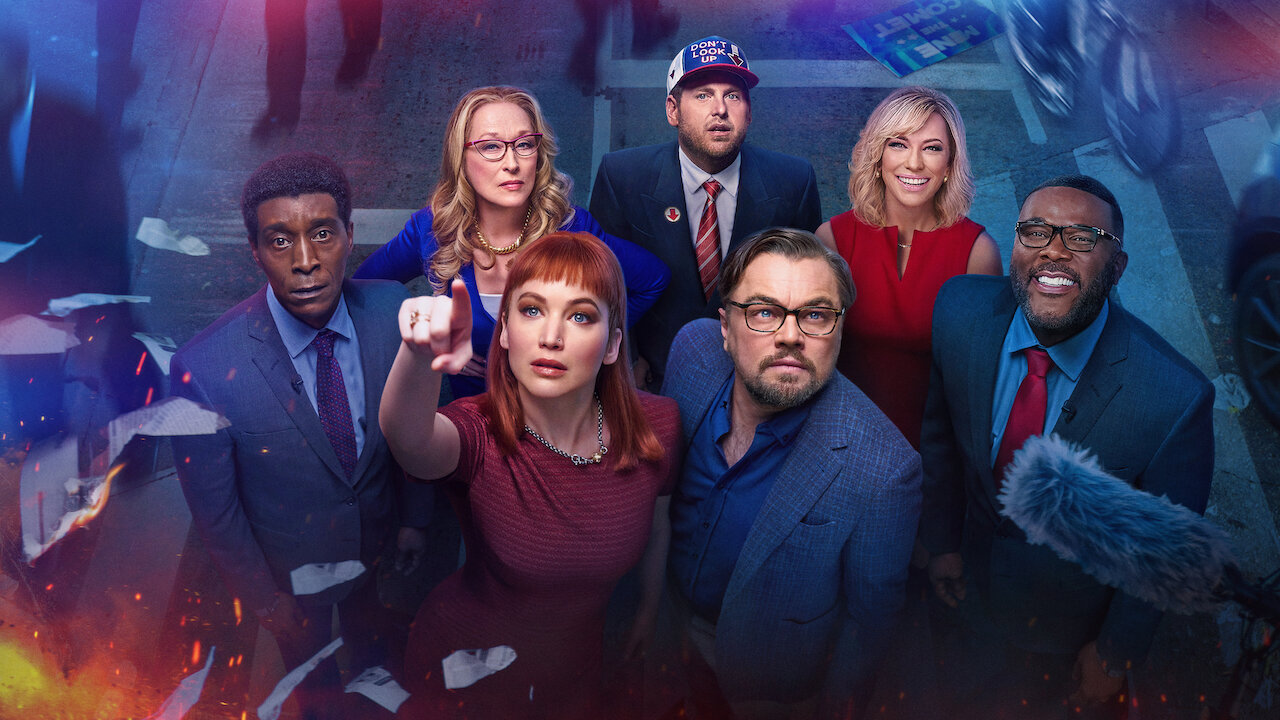
It has that ‘McKay’ look to it that we’ve seen in his previous films The Big Short and Vice, but it’s the editing that kills the pacing for me. I can’t ignore the stock footage cut-ins that are shoehorned in, like some editing assignment on the basics of montage. It just doesn’t fit in with anything he does here.
Don’t Look Up is nominated for multiple Oscars, including Best Picture and Best Original Screenplay. Despite my review and feelings towards the film (if you haven’t gathered, I’m not a fan), I believe there’s a good shot at McKay securing a win here. It’s not unheard of for an underdog movie to get the win (I’m still not over Green Book winning over BlacKkKlansmen and Roma, like…how?). This might seem like a “scathing criticism of our society and politics” and that McKay is a “satirical genius” for writing this, but it’s just…underwhelming. The message is clear; it’s there…but it doesn’t speak as some great warning for our future if we don’t get our act together. Only in its last few lines does it say to some sentimentality for humanity: “We really did have it all, didn’t we?” McKay squeaked a little bit of hope in an otherwise hopeless movie, satisfied with his comedic commentary on climate change and the downfall of humankind.
Well, I wasn’t satisfied.
